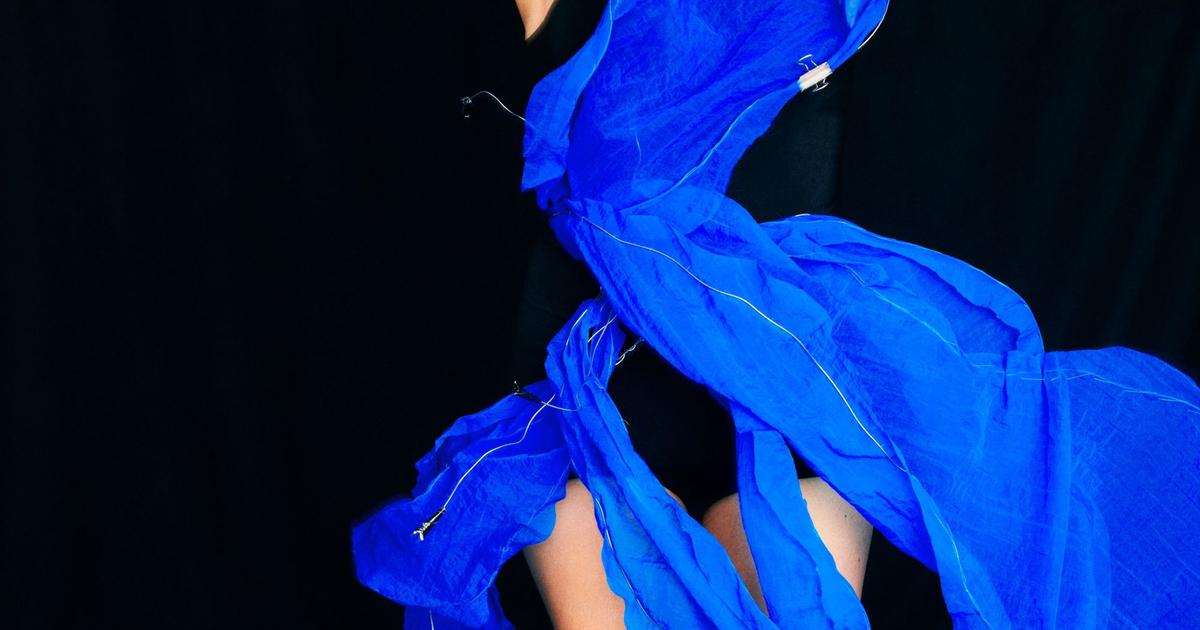Child of the Star Academy, Olivia Ruiz escaped any attempt to make her a formatted singer.
At the time of his first album,
J'aime pas l'amour
(2003), his record label tried to impose a clear path on him.
The singer and composer of Spanish origin opposed it, drawing her own artistic contours.
Today she is the author with a sharp pen of two novels dedicated to women (
The Commode of Colored Drawers
, in 2020, and
Listen to the Rain Falls
, in 2022
)
, and she returns, after eight years of discographic silence , with a sixth album.
All combined with the feminine, her songs are an invitation to reveal oneself.
Electro and meditative,
La Réplique
, the title of the record, marks a return full of enthusiasm.
While she finishes her third novel, Olivia Ruiz is also preparing to go on tour again and will be on stage at the Olympia in November 2024.
To discover
The keys to supporting women in their working lives
Download the Le Figaro Cuisine app for tasty and authentic recipes
Madame Figaro.-What made you want to record an album after eight years of discographic silence?
Olivia Ruiz.-
My mother always told me: “We don’t know where we’re going, but we’re going.”
I wanted to start getting back on stage again, to rediscover the adrenaline of festivals.
My last musical show -
Bouches cousues
, which looked back on the journey of my family, who fled Franco's Spain - was very intimate.
The concerts were akin to a kind of sacred communion.
There, I wanted explosive energy and, without knowing it, I was ready.
I left for the south of France and, after three days, I already had six new songs.
Nothing is born from nothing. Did writing novels inspire you in the composition of these pieces?
I got a lot closer to women by creating the heroines of my novels, who enveloped me.
They look like the women I love: vigorous, deep, forgiving.
I was also inspired by associations that fight for women's rights and deliver powerful messages: "You will succeed", "Your body is sacred", "You are not alone".
I am close to collectives like #NousToutes or
125 et après
which helps women victims of violence.
I participated in the writing of the book
125 and thousands,
edited by Sarah Barukh, which narrates the lives of 125 victims of femicide.
Nadia Guillemin, the woman whose story I tell, was killed by her partner in 2022. To find courage in her desperate situation, Nadia danced alone in the kitchen with her whole body, as if it were a question of life or death. dead.
The song
Tu danses,
from my album, is intimately linked to this woman.
How would you describe the heroines of your novels and what influence do they have on this album?
Rita, the heroine of
The Chest of Drawers of Colors
, my first book, is a passionate, funny woman thirsting for freedom, but trapped in her lack of resilience.
Carmen, at the heart of my second novel,
Listen to the Rain Falling
, has been overprotected and wants to face the dangers of life.
These female characters are shot through with the same vibration that I wanted to instill in this album.
You have chosen instrument stamps that have an immediate effect on the skin, the body…
I wanted to transpose the central idea of this album - the liberation of feminine power - through sounds that trigger it.
I needed instruments that spoke to the body.
I went to find them with Frank Marty, a composer with whom I have worked since I was 17.
He has a museum of instruments, in the south of France, which I enrich with prototypes unearthed during my travels.
For this record, we used around twenty instruments, like the tiple, for example, which is a Colombian guitar with a velvety sound and visceral bass.
We also used an Indian electric banjo, which produces shrill, aggressive highs, but also a sensual sound, like a vibration that envelops the body.
I was also looking for an aggressive, electro color.
I wanted to go boxing with this album.
Make people dance.
Disturb.
There is a lot of talk about the body in your songs. What have you done to get closer to yours?
From the age of 9 to 12, I was bullied at school because of weight gain.
This experience shaped my personality.
Before that, I was a happy-go-lucky little girl, the “high school freak.”
I wasn't afraid of anything: I danced, I sang, I did sketches.
Since then, I have become a body control freak, and I have only found other avenues of liberation through contemporary dance, music and sex.
Today, my body is my friend.
I thank him and I celebrate him.
(1)
The Replica
(Glory Box Music).
In concert at Printemps de Bourges on April 25 and at the Olympia on November 20.

